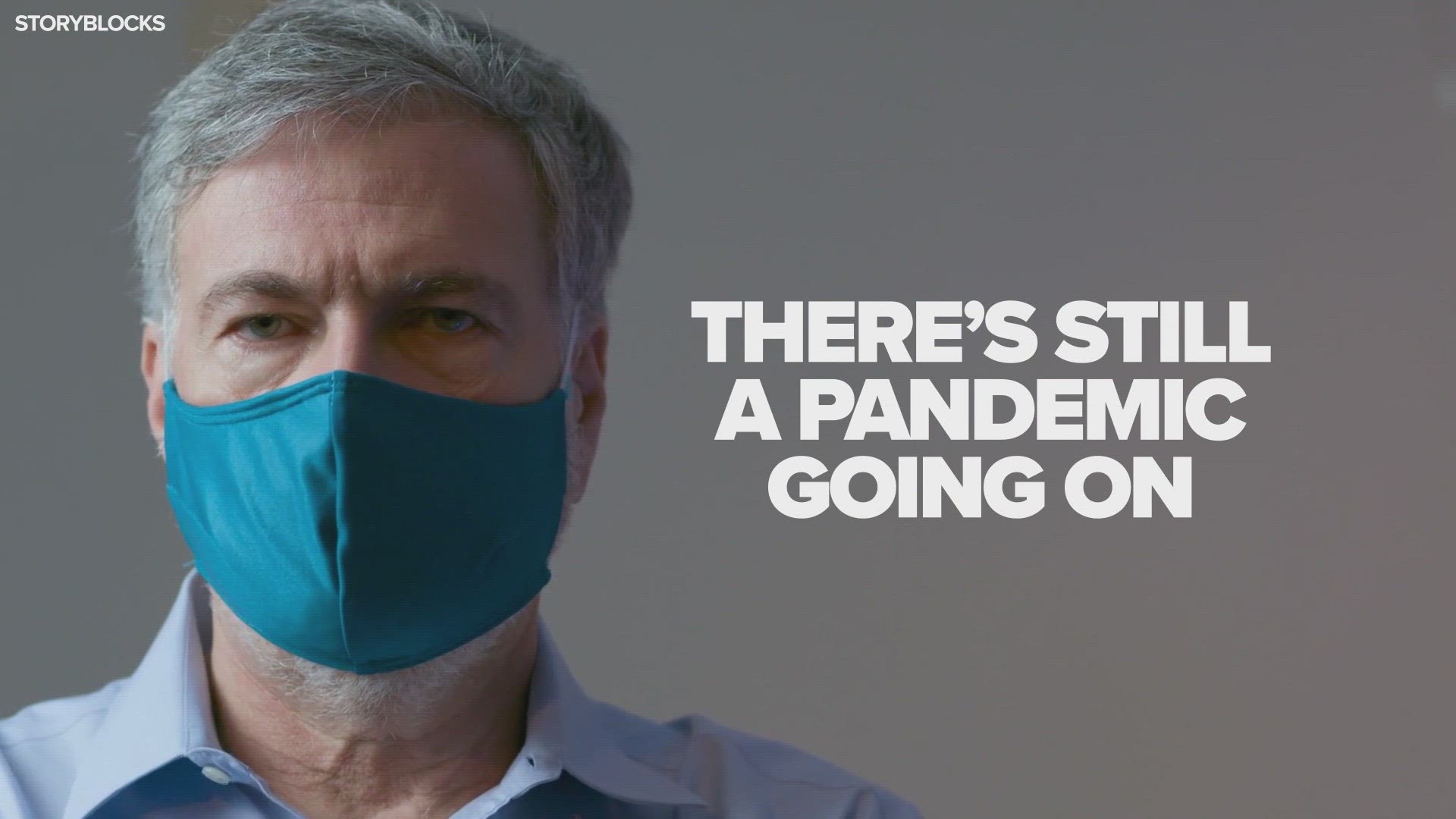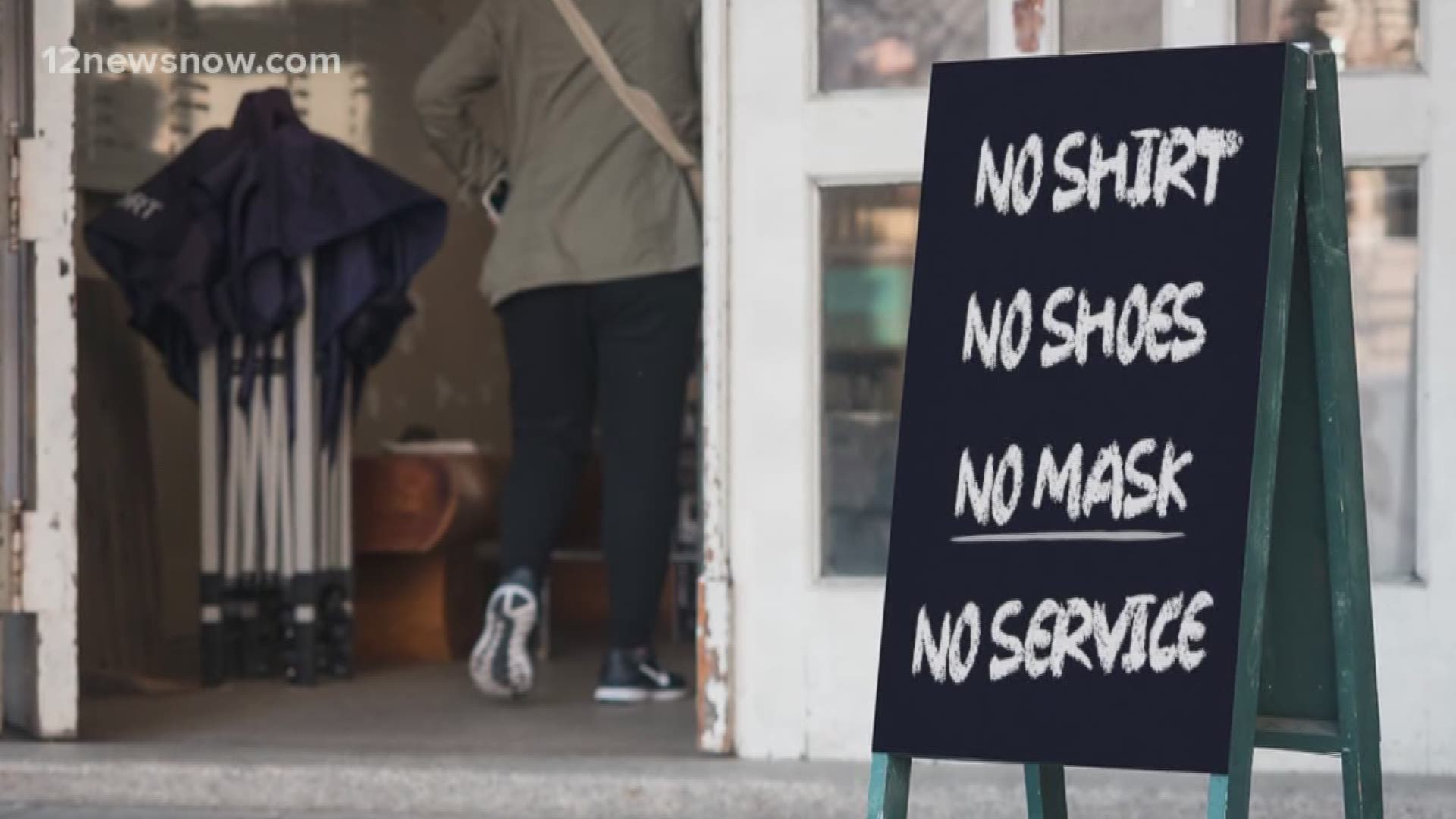BEAUMONT, Texas — Several coronavirus testing sites will be available in Beaumont through the end of July for those wishing to be tested for the virus.
No registration or insurance is required at the walk-up sites though ID is required.
Some sites may require pre-registration.
Test locations are added regularly so our list may be a partial one so check here for more.
Here's where and when testing will be available...
Tuesday, June 30
- Cristo Rey Church, 767 Avenue A, Beaumont
- 9 a.m. - 4 p.m.
- Kirby Elementary, 1205 N 5th St, Silsbee
- 9 a.m. - 6 p.m. through Wed., July 1
- McCabe-Roberts Avenue UMC, 1205 Roberts Ave, Beaumont
- 10 a.m. - 3 p.m. through Thursday, July 2
- Call (409) 240-1494 for an appointment and more info
Wednesday, July 1
- Kirby Elementary, 1205 N 5th St, Silsbee
- 9 a.m. - 6 p.m.
- McCabe-Roberts Avenue UMC, 1205 Roberts Ave, Beaumont
- 10 a.m. - 3 p.m. through Thursday, July 2
- Call (409) 240-1494 for an appointment and more info
Thursday, July 2
- McCabe-Roberts Avenue UMC, 1205 Roberts Ave, Beaumont
- 10 a.m. - 3 p.m.
- Call (409) 240-1494 for an appointment and more info
- Groves Senior Citizens Center, 5649 West Washington, Groves
- 9 a.m. - 6 p.m. by appointment only. Residents can call 1-512-883-2400, or visit the website at www.txcovidtest.org to schedule an appointment.
Tuesday, July 7
- Plymouth Village. 5080 Helbig, Beaumont
- 9 a.m - 3 p.m.
- Walk-up registration
Monday July 13
- Northridge Manor, 4155 Maida, Beaumont
- 9 a.m. - 3 p.m.
Monday July 20
- Stonehurst Apartments, 1610 E. Lucas, Beaumont
- 9 a.m. - 3 p.m.
Monday July 27
- Pointe North, 3710 Magnolia, Beaumont
- 9 a.m. - 3 p.m.
Officials say you'll be screened if you have fever and/or chills, cough, fatigue, body aches/muscle or joint pain, shortness of breath, sore throat, headaches, nausea/vomiting/diarrhea or nasal congestion. Those with a loss of taste and/or smell will also be screened.
GET NEWS & WEATHER ALERTS | Download the 12News App to your mobile device
Coronavirus symptoms
The symptoms of coronavirus can be similar to the flu or a bad cold. Symptoms include a fever, cough and shortness of breath, according to the Centers for Disease Control.
Most healthy people will have mild symptoms. A study of more than 72,000 patients by the Centers for Disease Control in China showed 80 percent of the cases there were mild.
But infections can cause pneumonia, severe acute respiratory syndrome, kidney failure and even death, according to the World Health Organization. Older people with underlying health conditions are most at risk.
The CDC believes symptoms may appear anywhere from two to 14 days after being exposed.
Human coronaviruses are usually spread through...
- The air by coughing or sneezing
- Close personal contact, such as touching or shaking hands
- Touching an object or surface with the virus on it, then touching your mouth, nose or eyes before washing your hands.
Help stop the spread of coronavirus
- Stay home when you are sick.
- Eat and sleep separately from your family members
- Use different utensils and dishes
- Cover your cough or sneeze with your arm, not your hand.
- If you use a tissue, throw it in the trash
Lower your risk
- Wash your hands often with soap and water for at least 20 seconds. If soap and water are not available, use an alcohol-based hand sanitizer.
- Avoid touching your eyes, nose, and mouth with unwashed hands.
- Avoid close contact with people who are sick.
- Clean and disinfect frequently touched objects and surfaces.
- If you are 60 or over and have an underlying health condition such as cardiovascular disease, diabetes or respiratory illnesses like asthma or COPD, the World Health Organization advises you to try to avoid crowds or places where you might interact with people who are sick.


